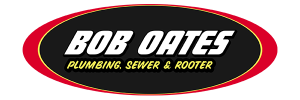4 Things You Should Never Do To Pipes
CALL (206) 789-4944
Serving the Greater Seattle Area

Pipes are like the blood vessels of your house. You only ever notice them when something goes wrong, like when they freeze or burst, or when you unearth them during your annual cleaning spree.
For maintenance of your running water, it’s essential to keep the pipes in working order. The other side of the coin is that certain things should never be done to the pipes, if you want to ensure that your toilet still flushes and faucets still work.
Here are four things that the team at Bob Oates Sewer & Rooter recommends you should never do to the pipes in your house.
Pour Bleach Into Them
Can you pour bleach down the drain? Bleach is a powerful, toxic substance that should be used carefully and properly, and pouring it down a drain is not a proper use. Bleach can react with other substances in your pipes, potentially release fumes, and further plug up the system.
Some well-meaning person once came up with the idea of regularly pouring bleach down the drains in order to clean out all the gunk that accumulates in pipes over the years. Unfortunately, that person with the good intentions was very wrong.
As a professional drain cleaning service, we recommend avoiding harsh chemicals like bleach. It’s not only harmful to the environment but can also damage your pipes.
There are environmentally friendly bleaches and home solutions you can use to clean your pipes, aligning with drain cleaning tips the techs at Bob Oates have recommended before. Pouring bleach down them will do much more harm than good!
Forcefully Thaw a Frozen Pipe
During the winter season, a frozen pipe is the homeowner’s nightmare. It can be dangerous and expensive on its own, but some people make the mistake of trying to speed up the thawing process. Being a trusted plumber in Seattle for decades, we’ve seen many pipes damaged by improper thawing methods.
The absolute worst thing to do is to use a propane torch in order to forcibly release water that is stuck in a frozen pipe. That can permanently damage the pipe by melting it. It can also ignite flammable material near or around the pipe.
When confronted with such situations, it’s advisable to seek rooter service to safely and efficiently address the issue of frozen pipes. At the same time, take a moment to review our plumbing tips for winter — if you’re able to address some problems without the need for a service call we’re here to help you do just that!
Dispose of Grease Down the Drain
After cooking a hearty meal, you might be tempted to dispose of all the grease by tipping it into your kitchen sink and watching it slither down the drain. This is a very bad idea. In our role as a premier Seattle plumbing company, Bob Oates technicians often deal with clogs caused by grease build-up.
Cooking grease does not get broken down, so it builds up over time, even if you only infrequently pour it down your kitchen drain. Grease that does not get broken down by soap simply hardens and clogs your pipes.
Even if it makes it all the way to the sewers, grease can damage the environment by combining with soap-like chemicals, blocking the pipes, and causing sewer overflows. That’s why public utility and environmental companies ask people to dispose of grease in the trash, and not the sink.
If you must get rid of grease in your sink, flush it with cold water, not hot. Cold water solidifies grease into particles, which makes its journey much smoother. Warm water melts the grease or keeps it in a semi-liquid state, which means it will harden only when it reaches a cold spot in your pipes. At that point, it’s likely to solidify where it shouldn’t and impede drainage.
Of course, if things have gotten out of control and you’re facing a grease-induced clog, our sewer repair services are here to help.
Dispose of Food
It’s the easiest thing in the world to get rid of leftovers simply by mashing them down the kitchen sink, but this is one of the worst things you can do to your pipes. Like most other substances, food will accumulate in your drains over time and clog the system.
You should be aware that the garbage disposal unit cannot shred certain items very effectively. An example is meat, which becomes stringy and wraps itself around the blades of the unit. This dulls the blades and renders them less able to break down other food items that go in later.
Similarly, starch from rice, pasta, and potato skins makes the blades of garbage disposals slimy, either rendering them ineffective, or simply clogging them up. At some point, repeated clogging will turn into a need for sewer repair or complete sewer line replacement.
Take some free advice from one of the leading plumbing companies in the region: It’s best not to throw solid food material into the garbage disposal at all. Just place all of it in the trash, and let the unit take care of whatever is left.
Reach Out to the Bob Oates Team!
Bob Oates Sewer & Rooter is a family-owned and operated business, and committed to the ethos of “people helping people.” We pride ourselves on tackling all your plumbing and sewer requirements with excellence, ensuring each job is done right on the first attempt.
Our team, equipped with the latest technology and extensive experience, provides unmatched customer support, quality, and reliability. To schedule an appointment or to discover more about our drain cleaning services, feel free to contact us today!
CALL (206) 789-4944
Serving the Greater Seattle Area





